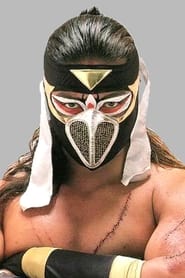 Eiji Ezaki
Yatsushiro, Kumamoto, Japan
Eiji Ezaki
Yatsushiro, Kumamoto, Japan

Eiji Ezaki (江崎 英治, Ezaki Eiji) was a Japanese professional wrestler, stage actor, musician and professional wrestling promoter, better known under the ring name Hayabusa (ハヤブサ, Hayabusa, "Falcon"). He was best known for his time with Frontier Martial-Arts Wrestling (FMW), where he primarily wrestled throughout his career and was the franchise player of the company between 1995 and 2001.
Ezaki initially competed for FMW as a low-carder between 1991 and 1993 before travelling to Mexico where he developed the "Hayabusa" character and his signature wrestling style during his time with lucha libre organizations. He returned to FMW in 1995 and received a significant push as the face of the company, winning his first Brass Knuckles Heavyweight Championship later that year. He spent much of 1996 on the sidelines due to injury and lost the majority of his high-profile matches upon his return. He started gaining popularity and championship success in 1997 and won the Double Championship in 1998 and held the title for most of the year. He developed alter egos such as "The Dark Side of Hayabusa" in 1996 and the unmasked "H" in 1999. His career ended in late 2001 after a botched moonsault left him paralyzed during a match with Mammoth Sasaki.
He was a five-time world champion in FMW as he won the Brass Knuckles Heavyweight Championship three times,[5] Independent Heavyweight Championship one time and the WEW Heavyweight Championship one time. He also became a two time Brass Knuckles Tag Team Champion, a two time WEW World Tag Team Champion,[8] a two time World Street Fight 6-Man Tag Team Champion and a two time WEW 6-Man Tag Team Champion.[9] He also won All Japan Pro Wrestling's All Asia Tag Team Championship once.
In his post-retirement years, Ezaki promoted the Wrestling Marvelous Future (WMF) promotion, which spun off from FMW, but the promotion was a failure and ended in 2008. He headlined many pay-per-view events for FMW including the company's premier show Anniversary Show a record six times, consecutively for four years between 9th and 12th editions of the event.














